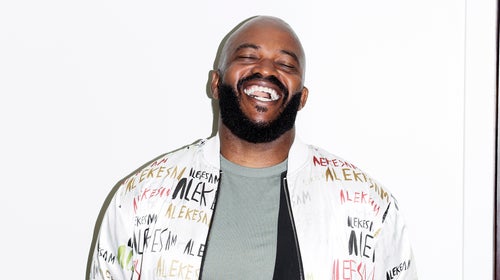The Unlikely Preacher of Action Sports
Sal Masekela, first son of a Haitian immigrant and a legendary South African jazz musician, was the face and voice of the X Games, Red Bull’s Media House, and the Olympics. Now, as the meteoric growth of the action-sports industry comes back to earth, the most connected man in the room is left wondering what’s next.
New perk: Easily find new routes and hidden gems, upcoming running events, and more near you. Your weekly Local Running Newsletter has everything you need to lace up! .
Sal Masekela steps off a helicopter onto the white sands of Tavarua Island Resort, a tiny speck in the Fiji archipelago, and walks into a gorgeous open-air restaurant that overlooks a world-famous reef break appropriately dubbed Restaurants. He greets the Fijian staff by name, hugging them, asking them about their lives since his last visit.
Masekela, you may recall, was the face and voice of , hosting both the summer and winter events for more than a decade. With his iconic dreadlocks and smooth baritone, he was a fixture at the center of the action-sports universe, narrating nearly every history-making moment at the games, from on a motorcycle in 2006 to in 2012.
Today, six years since a breakup with ESPN, Masekela remains deeply entrenched in action sports. He is here, on the surf mecca of Tavarua, for a vacation with a group of friends comprised of athletes, movie stars, entrepreneurs, Instagram influencers, and their families. As he makes the rounds, a guest compares him to Ricardo Montalbán, the suave Mexican actor best known for playing Mr. Roarke on Fantasy Island. Somehow, despite the fact that Masekela is a stocky black man, and recently bald, it’s a rather apt observation. It can be challenging to walk anywhere with Masekela, because everyone who sees him wants to stop and talk with him and he wants to talk to everybody. He is Larry David’s worst nightmare.
This is Masekela’s 16th trip to Tavarua but nonetheless a special one, because it’s his first visit since his father died from prostate cancer six months ago. Hugh Masekela was a trumpeter and is often credited as the father of South African jazz. He played and toured with everyone from Paul Simon to Dave Matthews and was nominated for three Grammys. During apartheid, Hugh left South Africa to study music in the United States, but he remained outspoken against the brutality of South African racial segregation. In 1986, he recorded “,” a song demanding the release of Nelson Mandela that would eventually become a rallying cry for the anti-apartheid movement.
Tavarua is Masekela’s favorite place on earth, and he’d implored his father to travel there with him. They made plans for the fall of 2016 and even purchased tickets, but at the last minute, Hugh postponed. A year and a half later, he passed away. This trip, these waves, Masekela says, are for his dad.
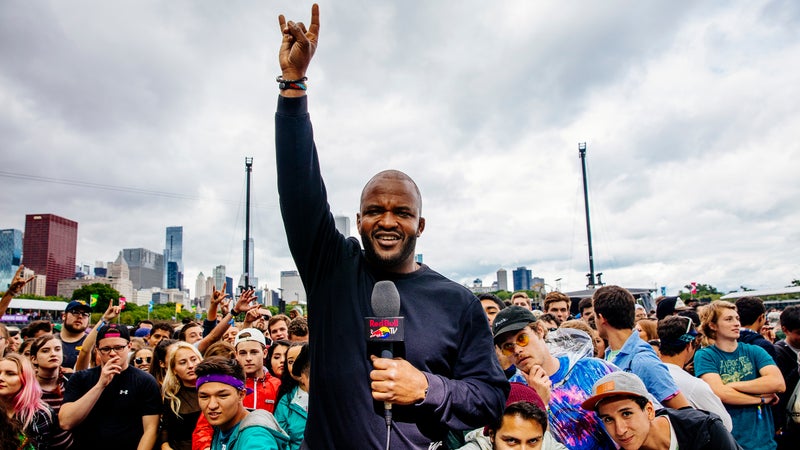
The vacation also comes at a significant moment in Masekela’s career—a moment when he hopes to find a path back into the limelight. Since walking away from the X Games, he has continued to work in television, hosting a series for Red Bull Media House, reporting stories for NBC at the 2014 Winter Olympics in Sochi, and hosting a sports documentary series on Viceland, among other gigs. He’s had bit parts in movies. His band, , which blends jazz, soul, and R&B, has been featured on HBO and Showtime and released its second album last summer. Still, Masekela has grander ambitions, though he struggles to define them.
Like many major figures from the heyday of action sports, Masekela is still coming to grips with the fact that his world has lost much of its cultural and commercial cachet. As recently as 2011, an average of more than a million viewers tuned in to watch the four-day-long Summer X Games on television. By 2017, that number dropped to 385,000. (ESPN says viewership is actually up when you account for streaming and social viewers, but declined to share year-over-year numbers.) The formerly rebel sports of snowboarding, BMX, and skateboarding have been adopted by the Olympics. The bad-boy stars of yesterday are now middle-aged dads.
Masekela has ridden the action-sports wave as far and well as he could’ve hoped, but no ride lasts forever.
That Masekela became the face of the X Games in the first place was wildly improbable. He was born in 1971 in Los Angeles, the first child of Hugh and Haitian immigrant Jessie Lapierre. By the time he turned four, his parents had moved to New York City and split up, and his mother was remarried to a Jehovah’s Witness, who raised Masekela in the church. But despite his stepdad’s best efforts, Hugh’s influence endured. Masekela split time between marijuana-clouded jazz clubs and going door to door spreading the Truth. “Growing up between those worlds gave me a strange set of skills,” he says. “For a long time they felt like a burden, like I was always working to fit in.”
His mom and stepdad moved around a lot, ultimately abandoning the East Coast for Carlsbad, California, at the start of Masekela’s senior year of high school. Relocating across the country was difficult for him. During the drive out, he spent rest-stop breaks at pay phones. “I was calling my girl back east and not saying anything,” he says. “Just weeping on the phone for like ten minutes, that high school heartbreak shit.”
But on his first morning in Carlsbad, he discovered that his new house sat on top of a steep hill with a view of the ocean, a feature that he credits with shaping the trajectory of his life. “Imagine, you walk out of this house onto this lawn, and you look and you’re like, Oh shit we’re right here.”
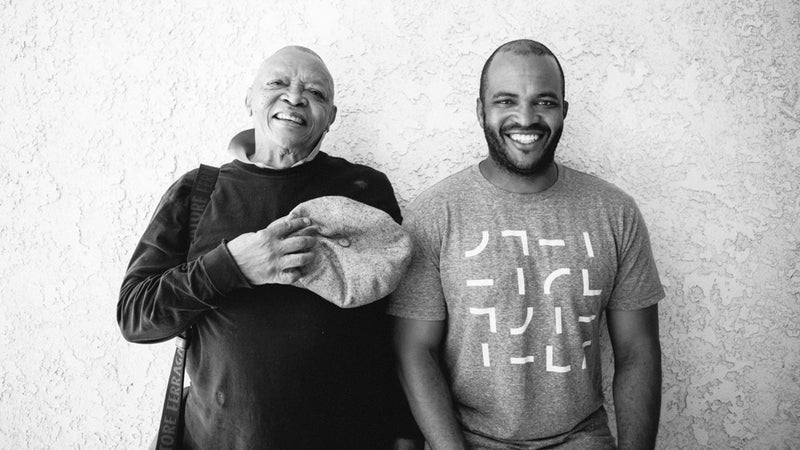
Surfing became the focus of Masekela’s life. As a Jehovah’s Witness, he was discouraged from playing organized sports, but several of the members of his congregation surfed, and they loaned him a board and a wetsuit, which he put on backward the first time. He spent his downtime at school paging through back issues of Surfer, neglecting his schoolwork to study board sports. He refined the basic skateboarding skills he’d started developing back east, and he learned to snowboard. “Nothing else sounded as good,” he says. “I didn’t want to be around people who did it. I wanted to be around people who lived it.” He became a full-on disciple of what he would call the shred life.
The tension between his new passion and his commitment to the church began to mount. At 19, Masekela went to South Africa to meet up with his father, who had recently returned home for the first time in 30 years. It was 1991, and Mandela had just been released from prison. During the trip, Masekela explored life a bit too enthusiastically for the church’s standards. His sins were, in his words, “that I made out with a bunch of girls and smoked some pot.”
When he confessed, the elders chose to disfellowship him. “You have to keep going to church, to the meetings, but no one talks to you,” he explains. During his exile, Masekela remained close with his mother, but the social isolation was a brutal punishment. “It was without a doubt the most difficult time in my life,” he says. “I was severely depressed. I held a knife to my wrist in my kitchen many times.”
He moved to a new congregation in a nearby beach community called Leucadia. In 1993, while working at a restaurant, he crossed paths with several employees from TransWorld Media, which produces board-sports magazines and films, and he charmed his way into a job as a receptionist. In no time he worked up to sales jobs and small-scale announcing gigs for skateboarding competitions. His circle of friends expanded to include the pros he was interviewing at contests. By 1996, he was the team manager for Boks, the nascent action-sports division of Reebok, where he helped build the brand’s surf, skate, snowboard, and BMX teams.
The more entrenched he became in action sports, the further he drifted from the church, leaving religion behind for a new gospel.
Masekela’s big break came in the winter of 1997, at a snowboarding conference in Vail, Colorado. Boks had just folded, and his future was uncertain. He knew he had to do some networking.
The event took place in the wake of the first X Games, which was an embarrassment to everybody who cared about action sports. Purple skateboard ramps and clueless commentators left the community and industry furious at how their lifestyle and products had been represented.
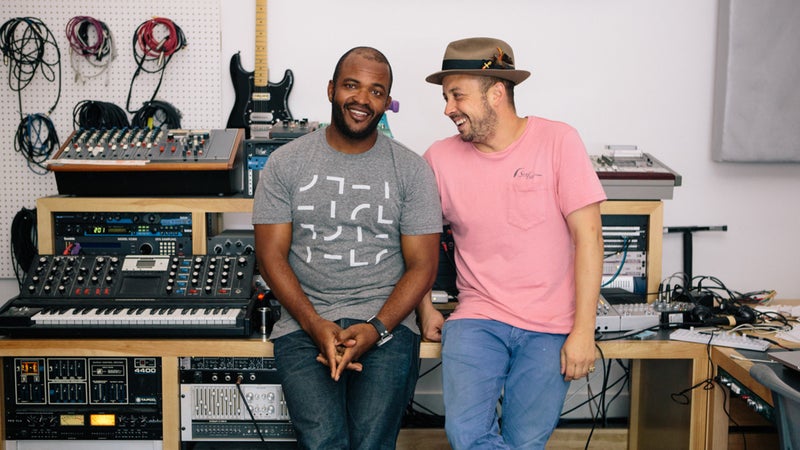
During a Q and A session that included executives from ESPN and MTV, Masekela decided to speak up. “At a certain point, I don’t even know what happened, but I was standing on top of my chair in the back. I said, ‘You know, I watch all these things—the X Games and what you guys are doing on MTV—and you don’t have any voices that represent our culture to tell people about what they’re seeing. Bill Bellamy doesn’t fucking snowboard. Here’s the deal: I’m young, I’m black, I surf and I snowboard, and I know that I could get in front of the camera and do that.’ ”
He got a standing ovation. “People were buying me beers all night like I had just given some weird ‘I Have a Dream’ shred speech.” At an after-party, an executive from MTV gave him a business card. The next year, Masekela was commentating the MTV Sports and Music Festival, offering the insider’s perspective he’d cultivated since landing in California years before.
By 1999, Masekela had landed a job as a reporter for the Winter X Games. The following summer, when Tony Hawk landed the first 900, Masekela was standing at the top of the ramp. From there it was pretty much game on. The action-sports wave was barreling into the mainstream, and Masekela was pitted as its chief evangelist.
Masekela’s presence on Tavarua is conspicuous for many reasons, but even if he was less gregarious, he would still stick out. Other than the Fijian staff members, he is the only black person on the entire island. By contrast, the kids on the trip are named Chili, Coast, Country, Fin, Hazel, Jet, Lyon, Oz, Rider, River, Roman, and Tashen. That list may not be exhaustive or spelled exactly right, but the point is: the only thing whiter than the sand here is the people.
Tavarua, like many tropical-island resorts, is a destination for people with money. There are spa treatments. There’s a yoga space. There’s an artificial-turf tennis court. Speaking of tennis, Masekela loves tennis. He also loves golf. When you grow up as a skateboarding Jehovah’s Witness, perhaps adding golfer to the list becomes easier.
But still, as a black man at the center of a nearly all-white industry, Masekela has encountered racism many times. In the early nineties, the owners of a surf shop where he was working let him go, telling him that business was slowing down and they needed to cut back on staff. But a friend who was still working there told him that the owners didn’t think Masekela matched the image of what a surf-shop employee should be—which is to say, white.
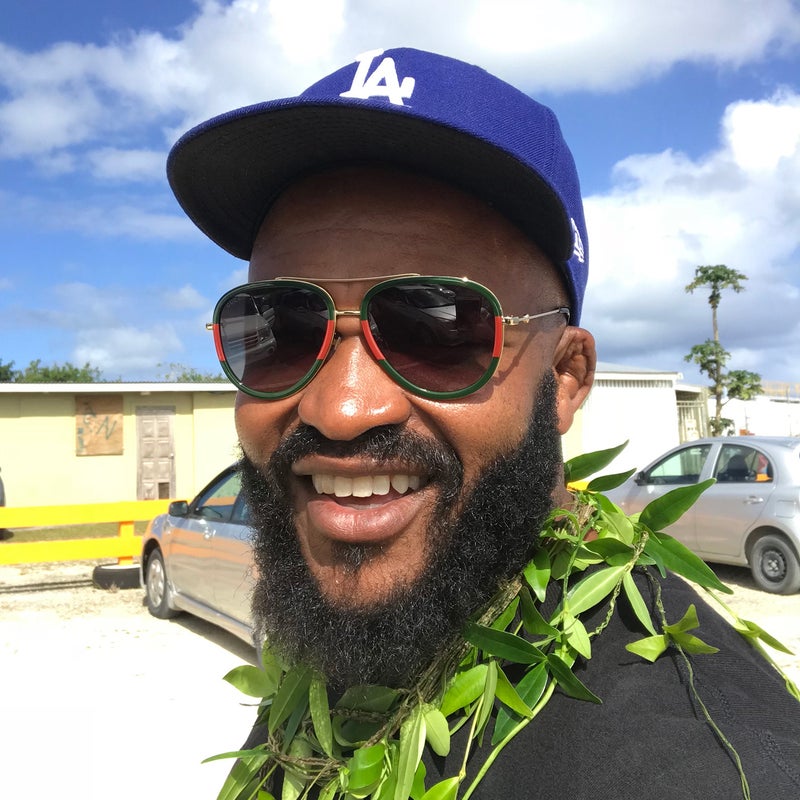
“Even though I had gone through all sorts of fucking racist shit as a result of starting surfing and snowboarding—people making fun of me and calling me a nigger and telling me that we don’t even swim—I still didn’t think something like that would happen,” he says. “It really, really fucked me up.”
When he got the job as the host of the X Games, the racism became more pernicious. People would assume he was a marketing choice made by network executives—that he had studied up on the difference between a heel flip and a pop shove-it after he got the job, when in reality he could do both of those tricks. “There were people who started to be like, ‘Wow, that’s really gutsy of ESPN to pick a black guy to do this. So smart. You don’t really do this stuff do you?’ ” The same authenticity that got him the job was suddenly being questioned because of his skin color.
“I didn’t have an agenda to be like, I’m the fucking Great Black Hope of action sports. I wanted to be the best commentator. I wanted to be seen as on par with the greats in broadcasting and entertainment.”
One warm summer afternoon on his couch in Venice Beach, Masekela was in a reflective mood. We were surrounded by boxes that he hadn’t unpacked since he moved to the house 12 months ago. The front door was open, and sunlight streamed in.
He told me about his split with ESPN, back in late 2012, saying that the network had wanted to renegotiate his contract. He said that a big reason he left was a feeling that ESPN had begun to devalue action sports in general. For Masekela, this was unacceptable; they were his life. A few weeks after quitting, he cut off his dreads.
“I was kind of wrestling for identity,” he said. “I cried while doing it. There were people who told me, ‘You just lit your career on fire.’ And I’d be like, ‘If you know me and consider me a friend, and you’re telling me that my hair is my calling card, then you’re telling me that you don’t hear what it is that I have to say.’ ”
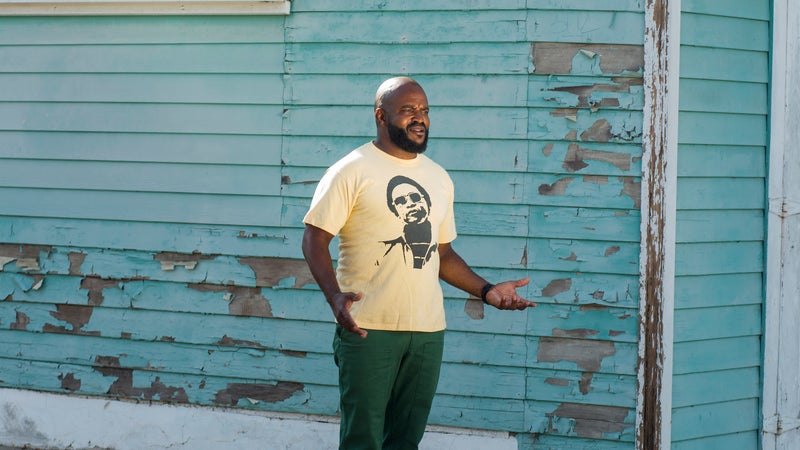
As a host and announcer, one of the greatest strengths Masekela brought to action-sports events was his credibility. “We had a lot of these bro-type announcers who didn’t really capture what was going on,” says snowboarder Shaun White. “Sal knew us personally, so he could kind of talk about how a guy has been wanting to do this trick for so long and what it would mean if he did it during this run.”
Today, though, being respected by core board-sports athletes doesn’t do much for a guy’s résumé. Masekela is eager to begin a new chapter but admits he doesn’t know what that will look like yet. Which is why he’s trying a little bit of everything. He’s starting a podcast, tentatively called What Shapes Us, for which he’ll interview the deep well of exceptional friends he’s made over the years, and possibly broadcast conversations with his father posthumously. He’s touring with his band, he’s hosting more traditional adventure and travel stories for National Geographic, and he’s trying to do more acting. He says he’d like to host another TV show, but only if it feels right.
One impediment to Masekela’s career reboot is the fact that he’s not the most organized person. He doesn’t like budgets or spreadsheets. He has a tendency to lose things, forget stuff, and miss flights.
Case in point: he arrives on Tavarua a day later than planned, after a fundraising event for his charity, Stoked Mentoring, ran long and he didn’t catch his plane to Fiji. But after he finishes unpacking, he hops on the evening boat to Cloudbreak, an infamous wave that detonates two miles from the island on a barrier reef. Just about anywhere else, you’d call the conditions good to great, but by Cloudbreak standards things are looking somewhat pedestrian. The wind isn’t quite right, the lulls between sets are long, and the wave isn’t barreling like it should.
Then, just before dusk, the wind dies a bit, and the reef starts to grab the swell. All of a sudden, Masekela is on an absolute gem—green and gold, backlit by low-angle tropical sun. Miraculously, the inside section gets hollow, and he tucks into the barrel. You can hear him whooping with joy. Finally, just before the wave ends, he kicks out the back. He’s probably 100 yards or more down the reef, but he reels in his board and heads straight for the lineup.
The sun is setting, but Sal Masekela is paddling back out.
David Shultz () is a freelance writer in Santa Barbara, California. This is his first feature for �����ԹϺ���.

